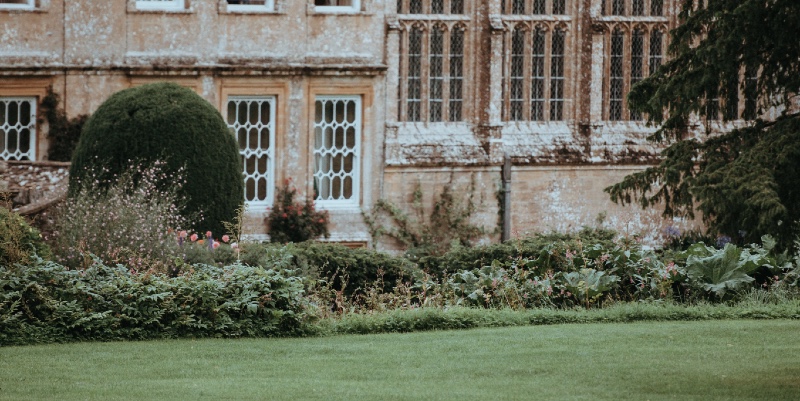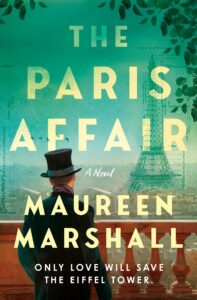Be warned that if you ever invite me for a dinner party, I’ll be taking notes about your family gossip. Not for any malicious reasons, and I won’t drop any names, but because I’ve always been enthralled with the stories behind the stories—the snippets of behavior so out of the ordinary that it’s worth repeating. For decades.
My relatives always rehashed bits of family lore when we were together for celebrations and holidays. I’m not sure if it’s because they couldn’t fathom why some of our antecedents made the choices they did, or if some of the stories were just too juicy not to share with the next generation.
That interest is shared by so many—pop culture is full of books and tv shows that zero in on how one decision can alter the future of everyone after. And when those stories are about your family, it provides a lot of fodder for a would-be novelist.
When I was twelve and visiting England with my working class, Yorkshire-born grandmother for the first time, we walked all over town as she told me stories she’d heard from aunts and uncles as a child. That bridge between me and people dead long before I was born, in a country I couldn’t claim, hypnotized me. Connected me. Every family has a child who was born to remember the family stories, and I was that child.
And the piece of lore that intrigued me the most was the one my grandmother was loath to discuss. I heard about it from my Auntie Pauline who pulled out brochures from the closest “big house” to their town. The sort of estate that thrilled the kid who was then consuming every English gothic novel she could get her hands on. Auntie Pauline told me that some number-lost-to-time great-grandfather of mine was raised in that big house. His mother had been the housekeeper, and his father? Auntie Pauline sniffed, pursed her lips and held back some mystery that I was apparently not old enough to hear yet. My grandma refused to feed my curiosity, which made me more intrigued.
On my next visit three years later, I insisted that I was sophisticated enough to guess, but begged for confirmation. Ah yes. The son of the house was the father. I was given no names, no dates. Just enough of a hint that I could imagine myself as the heroine in a Victoria Holt novel, everyone knowing but no one admitting because it would cast aspersions on the reputations of The Betters.
Twenty years later, while cleaning out my grandmother’s house, I came across Auntie Pauline’s pamphlets in a box and, armed with the internet, started to dig. My father has been a keen hobby genealogist for most of my life, and I’m a research fiend on my own, so it didn’t take long to come up with the most likely man from the family story. A Victorian priest who’d been in seminary in Paris in the 1860’s. No wonder he couldn’t marry! My brain went to work on putting pieces of the puzzle together. If I could somehow prove this link, I could claim I was related to all sorts of famous people I taught about as a high school history teacher.
Little tidbits like this which mean nothing to anyone else always seem to spur on my novels. When I was drafting The Paris Affair, which was originally going to be in the point of view of a ballet dancer, I fell back into the rabbit hole of this potential great-grandfather. What would have happened to the child when they grew up? In the “real” story, the child received some money to set up their life. Nothing glamorous, and I’m sure they were told to be grateful for it. But what if there was a way for the son to have gotten it all? The house, the money. The prestige. Would he have wanted it? What would have kept him from taking it?
These were the questions that prompted me writing Fin Tighe’s story. The son of an earl and ladies’ maid who’d been told his entire life that he wasn’t deserving of being part of the family. But the notion that it rankled gives the antagonist all the tools I needed to lead Fin through a labyrinth of facing his past and coming to terms with revenge and jealousy. Knowing who he is by birth—and not being given the opportunities he needed by leaning on those connections—drive him to get sucked into precarious situations. Made even more dangerous because Fin is a gay man. It was legal in Paris, by most measures, but career-ruining if it was determined. And Fin’s entire life has been bound by him not coloring outside the lines. But when his father needs an heir, and he’s told that there had been a secret marriage between his parents, he’s willing to take bigger risks with his own safety, and that of his vulnerable loved ones.
Because we all want to belong, and most of us would be willing to suspend belief if we’re offered proof that all of our dreams are within reach. That poo-pooing of inherent danger by the protagonist is what makes readers turn the pages. And it’s what’s so difficult when writing a twisty plot; finding that balance between amping up believable risks and making sure your character doesn’t act so foolhardy your reader throws the book at the wall in disgust. But when you strike that tension just hard enough; it’s very satisfying.
Now that we’re in the days of DNA testing, I’d be thrilled to have proof that my long-gone however-many-greats grandfather was connected to that estate. Not that I’d ever be in line to inherit it, nor would I want to pay the taxes on a place that size. But I do hope to visit it this summer, it’s a bed and breakfast now. I’ll soak up the grandeur, and read my own gothic suspense novel.
***


















